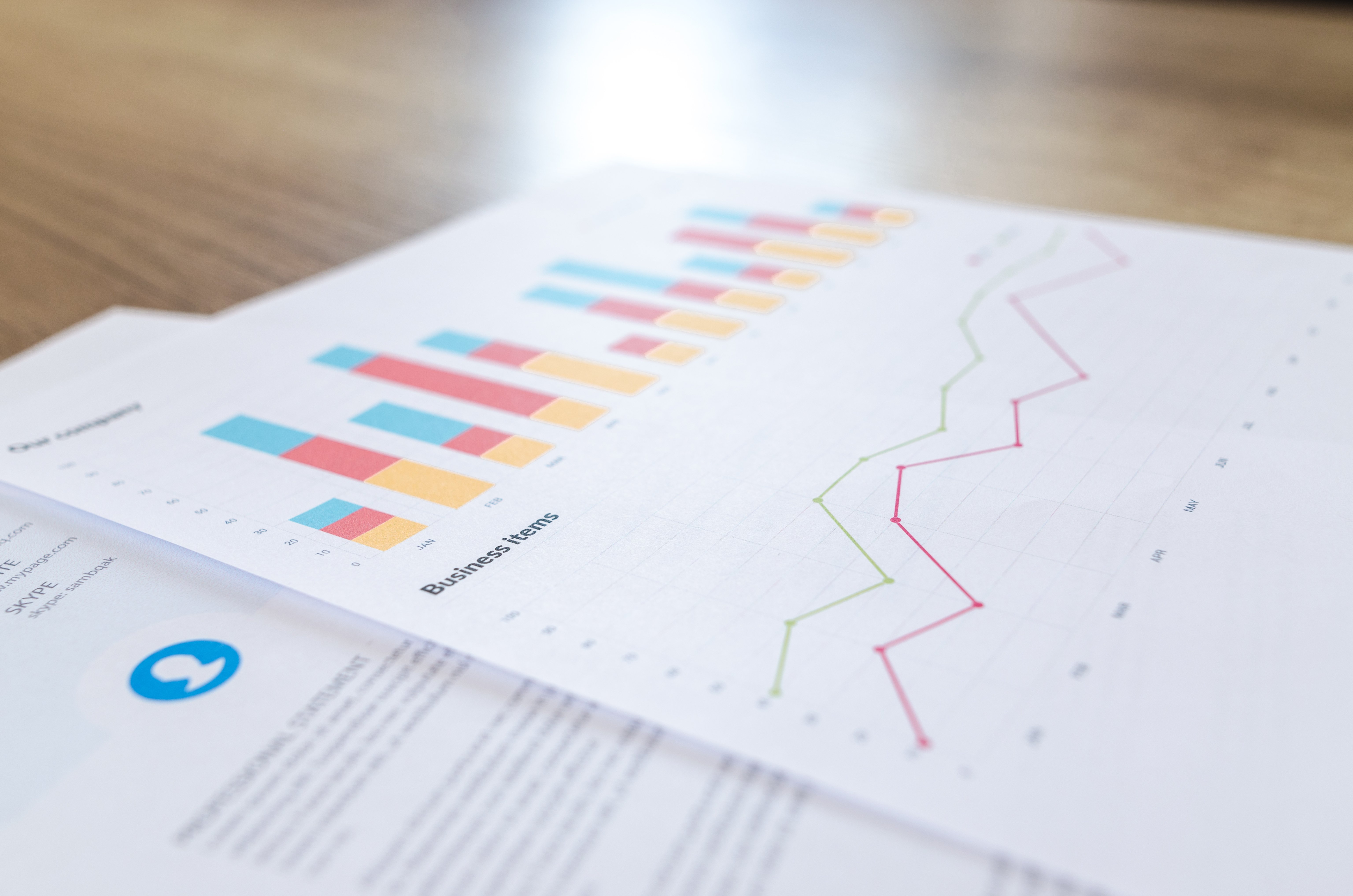There are a number of legal requirements around the topics of climate and energy management, the fulfillment of which can entail various obligations for companies. As a rule, this is also associated with fixed deadlines and dates that must be met. In our blog post, we highlight the German legal requirements such as the Special Equalization Scheme pursuant to § 28 ff of the Energy Financing Act (EnFG), the Peak Equalization pursuant to the Peak Efficiency Scheme Ordinance (SpaEfV) pursuant to Section 10 of the Electricity Tax Act (StromStG) and the Energy Efficiency Directive Sections § EDL-G. Read more about the German legal requirements in the following article and find out whether your company is obligated in terms of energy management.

Legal requirements in energy management - duty for companies
EEG - The German Energy Financing Act (EnFG)
Especially the manufacturing industry can benefit from the special equalization scheme according to § 28 EnFG. In particular, electricity cost-intensive companies that are in international competition are targeted by this equalization scheme. Affected companies must submit an application to limit the KWKG and Offshore grid surcharge for this purpose. This is intended to reduce the electricity costs of these companies and maintain their international competitiveness. The previously known EEG surcharge will be abolished on 01 January 2023 with the amendment of the EEG 2023.
In the case of annual electricity consumption ≥ 5 GWh, the following obligation of proof exists:
- Certification of the energy management system according to DIN EN ISO 50001 or
- Validation of the environmental management system according to EMAS (Eco Management and Audit Scheme).
In the case of electricity consumption ≤ 5 GWh, the law requires an energy audit to be carried out in accordance with DIN EN 16247-1 or testing in accordance with the so-called alternative system for improving energy efficiency in accordance with Section 3 of the Peak Efficiency Scheme Ordinance.
The organization's energy efficiency must also be demonstrated. This is done by evaluating the measures identified in the energy management system in economic terms - in application of DIN EN 17463. If the economic efficiency is given under certain criteria, the organizations are obliged to implement the measures. Furthermore, confirmation of the economic efficiency assessment by an authorized auditing body, such as the DQS, is required.
For electricity consumption ≤ 5 GWh/a, the law requires the introduction of an energy management system based on DIN EN ISO 50005 (implementation level 3) or membership of an energy efficiency and climate protection network registered with the Energy Efficiency and Climate Protection Network Initiative.
The limitation is always based on certain historical data (actual data) of your organization. It is granted with effect from the next calendar year (limitation year). The application for the compensation scheme must be submitted to the BAFA (Federal Office of Economics and Export Control) by June 30 of each year.
SPAEFV - Peak compensation
The Peak Compensation Efficiency System Ordinance (SpaEfV) pursuant to Section 10 of the German Electricity Tax Act (StromStG) is also aimed at the manufacturing sector and places an obligation on companies in terms of energy management.
Since 2013, large companies (non-SMEs) have been required to certify their energy management system in accordance with DIN ISO 50001 or to validate EMAS. From small companies, the verification according to the so-called Alternative System or EN 16247-1 is recognized.
The requirements for issuing a customs form 1449 must be met by December 31 of each year. This includes appropriate on-site audits by an accredited certification body such as DQS.
EDL-G - Energy Services Act
The Energy Services Act (EDL-G), which was amended in 2019, serves to implement the European Energy Efficiency Directive 2012/27/EU, which obliges all EU member states to take concrete measures to increase energy efficiency.
The EDL-G first made it mandatory for all non-SMEs to conduct an energy audit in December 2015 (Energy Efficiency Directive §§ 8-8d EDL-G). As a result, all companies with more than 250 employees or annual sales of 50 million euros are required to demonstrate the following to BAFA. Either
- a certification of their energy management system according to ISO 50001,
- an EMAS validation of their environmental management system or
- the performance of energy audits in accordance with EN 16247-1.
Only small and medium-sized enterprises (SMEs) as defined by EU2003/361/EC are excluded. BAFA carries out random audits on an annual basis.
Since this is a Europe-wide legal basis, companies with locations in other EU countries should note that different requirements may have to be met there.
BECV - SESTA Carbon Leakage Ordinance
To protect internationally competing companies that are additionally burdened by national emissions trading, applications for financial relief are also possible. Applications to the German Emissions Trading Authority (DEHSt) must be submitted by June 30 of the year following the accounting year.
Companies that are named in the BECV sectors eligible for assistance and provide the required counterpart contributions are eligible to apply. This includes proof of ISO 50001 certification or EMAS validation.
Companies with a total fossil fuel energy consumption of less than 10 GWh/a can provide evidence as follows:
- via a non-certified energy management system based on DIN EN ISO 50005:2021 that corresponds to at least implementation level 3, or
- through membership in a registered energy efficiency and climate protection network.
Affected companies must also demonstrate investments in energy efficiency or decarbonization measures. The energy efficiency measures must be identified as part of the energy management system and assessed as to whether they are economically viable according to a consideration of DIN EN 17463. Evidence of the respective counter-measures must be confirmed by an auditing body such as DQS.

The German Energy Services Act (EDL-G)
Benefit from our expert knowledge and learn more about the topic in the free White Paper (excerpt):
- Legal requirements
- What does BAFA require?
- Possible audit method
This White Paper is only available in German language.
Which companies are in the obligation?
For all the organizations mentioned, it does not matter whether they are so-called energy-intensive companies or companies from the manufacturing industry. Rather, all service providers are also obligated to provide corresponding evidence when it comes to energy management.
Regardless of whether you opt for an energy management system in accordance with ISO 50001 or for auditing in accordance with SpaEfV - the following aspects are of primary importance for companies:
- the continuous improvement of energy efficiency and overall energy-related performance
- the possibility to save not only energy, but also costs and CO2
The legislation - implemented accordingly - offers you further noteworthy and sustainable advantages.
In focus: the Energy Services Act (EDL-G).
In 2023, many companies were due to repeat their energy audit - a good time to think about a possible reorientation towards the international standard DIN EN ISO 50001. The reasons for an energy management system are obvious: The level of energy consumption has changed or the complexity of energy structures has increased. And: companies are increasingly coming to the realization that systematic energy management is suitable for meeting an internal energy policy in the long term - and thus, of course, also the Energy Services Act (EDL-G).
A brief review
The EDL-G was passed in Germany in April 2015, marking the national implementation of the European Energy Efficiency Directive (2012/27/EU, Article 8 of the EED). The intention behind it: Reduce energy consumption to achieve EU climate targets. Non-SMEs are affected, i.e. all companies that do not belong to the small and medium-sized enterprises.
In 2015, many companies had opted for an energy audit according to EN 16247-1 instead of a management system according to ISO 50001 or EMAS, in order to meet the requirements of the EDL-G and their duty in energy management and to withstand possible random checks by BAFA.
- Does a repeat audit according to the "Guideline for the Implementation of an Energy Evaluation" make sense?
- Or rather the introduction and certification of a fully comprehensive energy management system according to DIN EN ISO 50001 by external auditors?

Energy management - Are you obligated?
According to the German EDL-G, all companies above a certain size and in any industry are required to provide evidence to BAFA of either certification according to ISO 50001, EMAS validation or the performance of energy audits according to EN 16247-1.
Benefit from our expert knowledge and the free White Paper on the topic.
This White Paper is only available in German.
Next steps to comply with the energy management obligation
For reasons of practicality, companies that are required to conduct at least one energy audit under the EDL-G should consider introducing and continuing an energy management system in accordance with ISO 50001. This is because ISO 50001 certification also allows you, under certain conditions, to benefit from further incentive systems such as the peak compensation or the special equalization scheme.
Modern management system standards, for example ISO 9001 (quality), ISO 14001 (environment) and ISO 45001 (occupational health and safety) have a uniform basic structure - the so-called High Level Structure (HLS). Since this also applies to ISO 50001, it is advisable to go straight to an ISO standard when introducing an integrated management system.
Advantage: Integrated management system
Companies that already use one or more of the aforementioned management systems can use their structure to expand the existing system to include the energy management aspects. This significantly reduces the effort and costs involved. In addition, BAFA may provide funding for the implementation of energy management software and hardware. The maximum funding amounts to 15 million euros per investment project.
Energy management - mandatory for companies? Conclusion
Over the last few years, there have been a large number of changes and legal innovations with regard to climate and energy management. But regardless of whether you choose an energy management system according to ISO 50001 or an audit according to SpaEfV: The continuous improvement of the overall energy-related performance as well as the possibility to save not only energy but also costs andCO2 are in the foreground. The legislation - implemented accordingly - offers you a whole range of noteworthy and sustainable benefits.
DQS - What we can do for you
Founded in 1985 as the first certifier of management systems in Germany, DQS is now one of the world's leaders in the industry. 65 000 certified management systems from organizations of all sizes and industries are an expression of our more than 35-year success story.
Customers in more than 100 countries, global corporations, medium-sized companies and small businesses appreciate both our know-how and the recognized quality of our audits, as well as the comprehensive range of services related to our assessment services.
We are constantly setting new standards in dynamic markets and combine our expert knowledge in auditing with a serious commitment to the further development of management systems. Our customers see this as an opportunity. For them, the feedback from an independent auditor on improvement potential and risks is just as valuable as a DQS certificate as proof of their quality capability. To ensure that this remains the case, we pay strict attention to integrity and objectivity - read more about our audit philosophy.

Certified by DQS
What effort do you have to reckon with in order to fulfill your duty in energy management? Find out - without obligation and free of charge.
DQS Newsletter
Julian König
Head of Product Management & Accreditation at DQS and also an expert for ISO 50001, Julian König is responsible for accreditation-compliant product support and development for DQS's focus products. The bundling of know-how in his team creates a strong connection to the needs of the market. With his expertise in standards, he is also a sought-after author and moderator.


